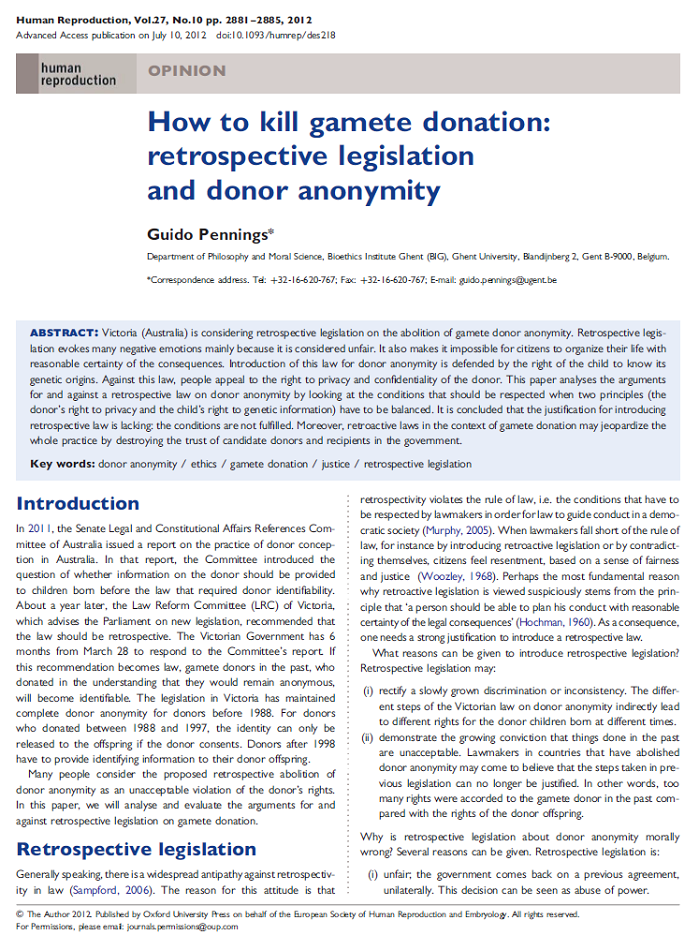Traduction du titre : Comment tuer le don de gamètes : législation rétrospective et anonymat des donneurs.
Auteur : Guido Pennings
Department of Philosophy and Moral Science, Bioethics Institute Ghent, Ghent University, Blandijnberg 2, Gent B-9000, Belgium.
Date : 10 juillet 2012
Résumé
Victoria (Australia) is considering retrospective legislation on the abolition of gamete donor anonymity. Retrospective legislation evokes many negative emotions mainly because it is considered unfair. It also makes it impossible for citizens to organize their life with reasonable certainty of the consequences. Introduction of this law for donor anonymity is defended by the right of the child to know its genetic origins. Against this law, people appeal to the right to privacy and confidentiality of the donor. This paper analyses the arguments for and against a retrospective law on donor anonymity by looking at the conditions that should be respected when two principles (the donor’s right to privacy and the child’s right to genetic information) have to be balanced. It is concluded that the justification for introducing retrospective law is lacking: the conditions are not fulfilled. Moreover, retroactive laws in the context of gamete donation may jeopardize the whole practice by destroying the trust of candidate donors and recipients in the government.
Mots clés : donor anonymity, ethics, gamete donation, justice, retrospective legislation
Lien du document : https://doi.org/10.1093/humrep/des218
Citation : Pennings G. How to kill gamete donation: retrospective legislation and donor anonymity. Hum Reprod. 2012;27(10):2881-2885. doi:10.1093/humrep/des218

